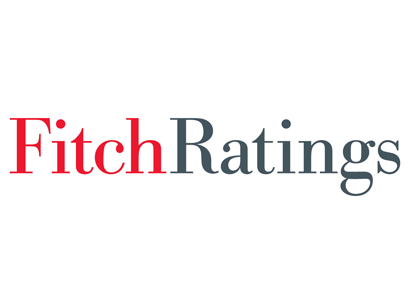Baku, Azerbaijan, Dec. 26
By Elena Kosolapova - Trend: International rating agency Fitch Ratings affirmed Kazakh National Company Kazakhstan Temir Zholy's (KTZ) Long-term Issuer Default Rating (IDR) and Kazakhstan Temir Zholy Finance B.V.'s senior unsecured rating at 'BBB', the agency reported on Dec. 26. The Outlook is Stable.
"KTZ's ratings reflect its 100 percent state ownership, indirectly owned through the JSC National Welfare Fund Samruk-Kazyna (S-K), and strategic importance to Kazakhstan (BBB+/Stable/F2) as monopoly owner/operator of the Kazakhstan rail infrastructure and provider of around half of the freight and passenger transportation in the country. KTZ's tariffs are regulated and its investment plans approved, and directly co-funded by the state through equity injections and loans. The government also provides direct subsidies for the loss-making passenger business," Fitch said.
However, despite relatively substantial and timely financial support, KTZ's ratings are rated one-notch lower than the state given the absence of explicit guarantees but also past instruction by the state for KTZ to undertake relatively sizeable social projects at the group's expense.
Fitch expects KTZ's earnings will continue to be supported by relatively strong volumes on the back of still strong GDP growth rates (expected by Fitch to be in excess of 5.5 percent in 2014 and 2015) and demand for the transportation of commodities, KTZ's key revenue driver. The 8 percent proposed average tariff increase for 2014 is also expected to be supportive, although remains lower than pre-2013 levels. Growth rates are therefore unlikely to witness the highs of previous years, not least of all given some dampening effect owing to the unification of tariffs in the Single Economic Space, expected to lead to reduced export tariffs, which accounts for around 40 percent of KTZ's freight turnover. Nevertheless, cost optimisation programmes aimed at increasing efficiency should help offset pricing pressures and maintain margin levels as witnessed in nine months of 2013.
Continued material increases in capex are expected to drive sizeable negative free cash flow (FCF) over the medium-term despite the expectation of strong earnings and cash flow from operations (CFO). In line with management's guidance, Fitch forecasts capex of over 1.1 trillion tenge (154.10tenge = $1) compared with CFO of roughly 700 million tenge over 2013-2015 financil years. Fitch acknowledges that a large proportion of capex, around 80 percent, is discretionary and where willing, may be deferred or cancelled by KTZ. However, assuming the full capex spend, Fitch forecasts that funds from operations (FFO) adjusted leverage would weaken to in excess of 3.0x from just below 2.0x, whilst fixed charge cover is likely to deteriorate to just over 5.0x from around 10.0x.
KTZ's business profile remains strong, benefiting from its monopolistic position, relatively diversified product and customer mix with balanced exposure to domestic, transit and export markets, according to the agency. However, the expected weakening in credit metrics, particularly increased leverage and negative free cash flow generation, places considerable pressure on the company's underlying credit quality. Whilst KTZ's ratings are, and are expected to continue to be related to the credit quality of the sovereign, KTZ's standalone credit profile may not be considered commensurate with a low 'BBB' rating where leverage exceeds 3.0x on a sustainable basis. Where credit metrics are allowed to weaken substantially further, this may prompt Fitch to reconsider the strength of ties between KTZ and its parent company.
A positive change in Kazakhstan's rating may be replicated for KTZ (with the current one notch differential), unless its links with the state weaken.
A material strengthening in KTZ's standalone credit profile to in line with the sovereign rating could lead to positive rating. This is currently considered unlikely but may be possible where credit metrics improve substantially owing to a material increase in earnings and/or decrease in capex leading to a strengthening in FFO adjusted leverage.
A negative change in Kazakhstan's rating would be replicated for KTZ unless KTZ's standalone profile significantly strengthens.
A sustained increase in gross leverage beyond 3.0x would put pressure on KTZ's standalone profile and may prompt Fitch to reconsider the strength of state support.






